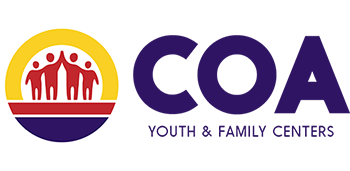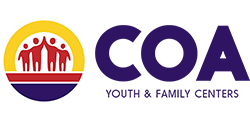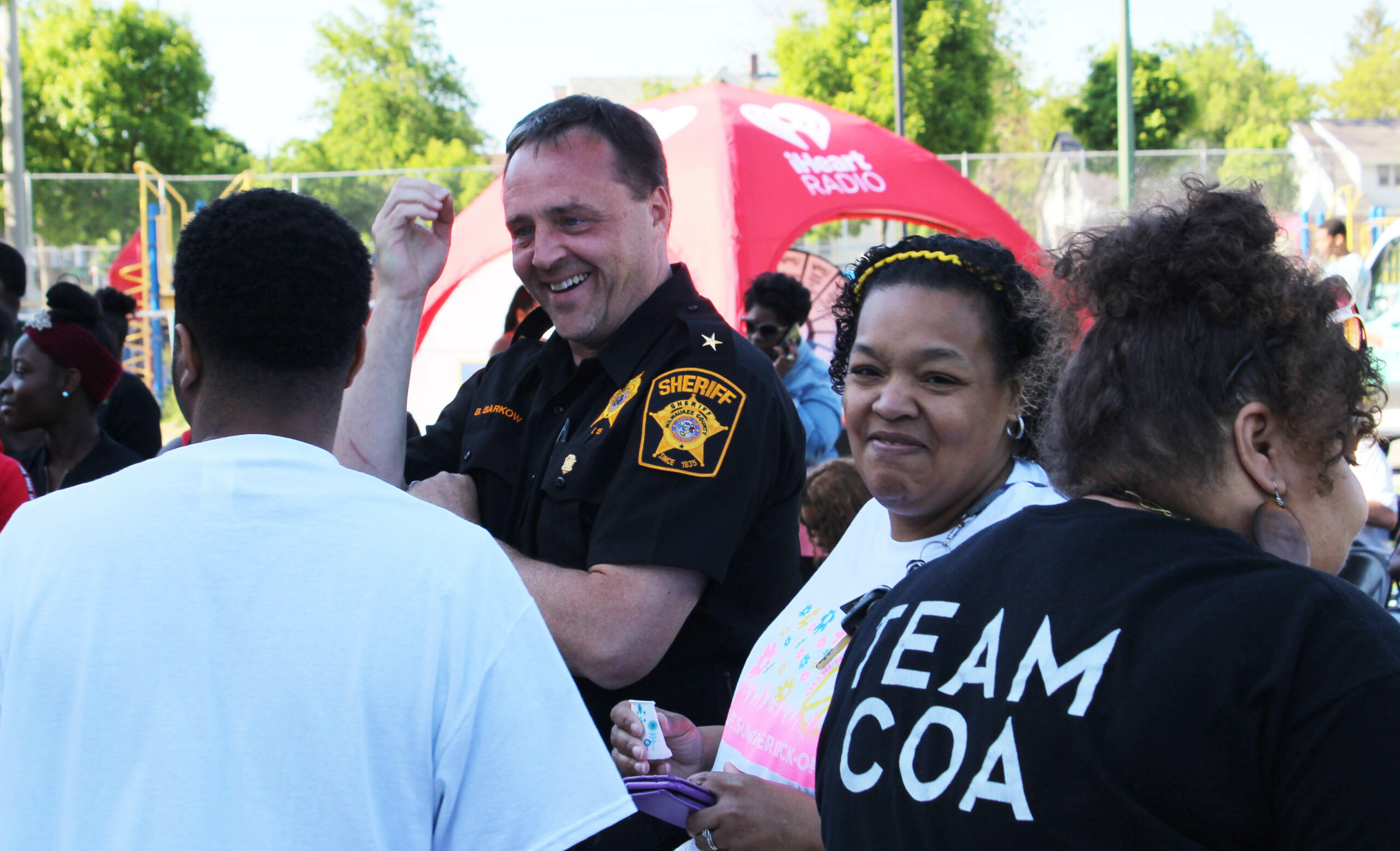Project Description
When COA’s Community Engagement Director Nicole Franklin first learned about a new program taking shape focused on strengthening youth-police relationships in Moody Park, she was skeptical the program would work. Relationships between law enforcement and youth in the park were often strained; youth felt targeted, and police felt they could not relate or get any respect. A mutual lack of trust and understanding sometimes led to lasting tensions and stalemate over issues of park safety. Given these circumstances, Franklin wondered, would teens really be open to building relationships with law enforcement?
The answer, it turns out, is an overwhelming “yes!”
COA’s new Real-ationships program connects teens in Amani with officers from Milwaukee Police Department (MPD) District 5, encouraging communication and building trust between police and youth in a supportive, non-crisis setting. Originally set to run for just six weeks from July through August, the summer program was so popular among teens it exceeded capacity – requiring some youth be placed on a wait-list to participate. Responding to the enthusiasm of youth participants, Real-ationships was extended beyond the original deadline and is now an ongoing program broadly focused on youth community leadership.
“The program directly engages youth and MPD in the co-production of safety in COA’s Moody Park, adjacent to COA’s Goldin Center, and surrounding neighborhoods.”
Real-ationships began as a collaboration between COA Youth & Family Centers, Safe & Sound, Zeidler Center for Public Discussion and Community Advocates, thanks to a ReCAST MKE Safe Summer Community Healing Project grant issued by the City of Milwaukee Office of Violence Prevention. The program directly engages youth and MPD in the co-production of safety in COA’s Moody Park, adjacent to COA’s Goldin Center, and surrounding neighborhoods.
Every Thursday throughout the summer session, 24 young Amani residents (ages 12 to 24) met with a group of MPD District 5 officers in plainclothes in Moody Park for mediated conversations to discuss what’s happening in the park, and to have fun while getting to know each other. Weekly activities included police-youth listening circles, cookouts, kickball, bonding over hair cutting and styling, authentic dialogue and role playing exercises.
Recognizing the power and influence youth can have in the community, Nicole Franklin recruited young people directly from Moody Park into the program. Her goal was to build the leadership skills of older youth from surrounding neighborhoods, who could serve as community role models for younger children – positively influencing behavior in the park. Franklin wanted to make sure young residents, in a meaningful partnership with the police, felt a sense of stewardship over Moody Park and were invested in its peace and safety.
“85% of surveyed youth participants reported positive responses to the statement “Police officers are respectful toward people like me” after completing Real-ationships compared to just 33% of youth participants at the start of the program.”
Real-ationships has profoundly improved relationships between police and youth participants in Moody Park. 85% of surveyed youth participants reported positive responses to the statement “Police officers are respectful toward people like me” after completing Real-ationships compared to just 33% of youth participants at the start of the program. Additional survey responses were similarly positive. The Milwaukee County Sheriff’s Office noted that emergency calls and crime decreased in Moody Park as a result of the program.
Real-ationships now meets twice weekly, with up to 40 youth (ages 9-22) participating in each session. With a renewed focus on building youth leadership skills, activities include interviewing black community leaders, working with residents on community projects and planning events for youth in Moody Park.
When asked what about Real-ationships she’s most proud of, Nicole responded she’s most proud of the “willingness of our youth to learn and explore new things.” The rest of us at COA Youth & Family Centers are proud of them too.
To support positive and effective community programs like Real-ationships, consider becoming a COA Community Champion by giving a small amount monthly – more information here.


